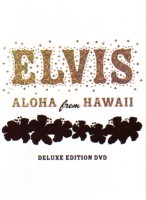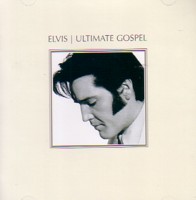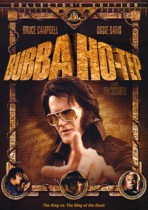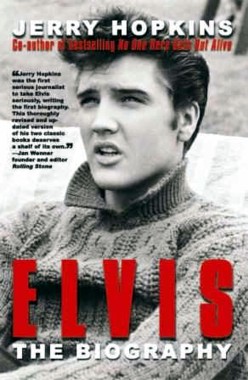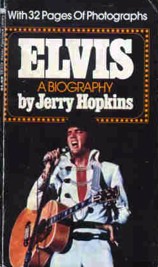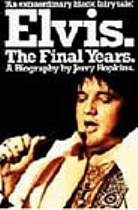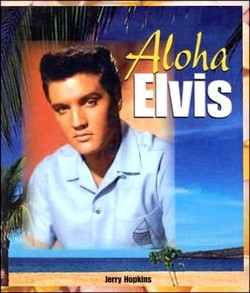 |
 |

For me Elvis’ music is paramount in importance when I want to understand or read about Elvis’ legacy. For instance in a biography on Elvis I like to have a few pages dedicated to his ground-breaking recording session for his classics ‘Hound Dog’ and ‘Don’t Be Cruel’ and how they came about. Similarly Elvis’ relationships with friends and family are also of interest since it was often Elvis’ private feelings and moods that would influence his recordings and performances. Thus my favourite biography on Elvis has to be Peter Guralnick’s two sensational volumes ‘Last Train To Memphis’ and ‘Careless Love’. At a combined 1,300 pages these two books delve into the details of Elvis’ life to just the right level. However I can understand that for the General Public these books can be over-detailed and over-long leaving people wanting a quicker, punchier narrative. This is where Jerry Hopkins ‘Elvis The Biography’ may be the a better choice.
In 2007 both Hopkins’ biographies were combined to create his new, revised version, "Elvis The Biography". So with the two weeks of holiday on a Polynesian beach I was looking forward for a chance at last to revisit Hopkins’ biography that I had read so long ago. Jerry Hopkins’ writing style is nice and easy going with a good balance of quotes and narrative text. The writing about Elvis’ early years captures the poverty of his family background followed by the excitement and inspiration of those breakthrough years. A later chapter such as "Changes" is also a perfect encapsulation of the importance of the Comeback Special and the 1969 Memphis Sessions. The only fault I found with the updated content of ‘Elvis The Biography’ was that Hopkins has left out any mention of Elvis’ spiritual quest in the mid-sixties and visits to the Self-Realisation Fellowship. Similarly the "Clambake" Elvis concussion incident and Larry Geller’s influence are also omitted. The stupidity of Elvis’ mid-sixties movies counter-pointed with Elvis’ spiritual awakening is an interesting part of Elvis life in the sixties and deserves a few pages. On a more positive note I found that Elvis’ final disheartening years are covered without too much sensationalism and Hopkins captures the right mood of sadness and hopelessness as no one can help Elvis halt his roller-coaster decline. This is still one of the best biographies of Elvis - there is still plenty to enjoy within its 420 pages and along the way Hopkins does feature plenty of interesting stories and insights that are missed from those other so-called biographies of Elvis. HOWEVER despite the enjoyable read, major factual errors started to jump to my attention this time around – even commencing with when Elvis was born! To begin with I kept ignoring the mistakes so that I could keep on enjoying the book but even without any other reference books - and away from any Internet connection - these major factual errors kept leaping to my attention. In fact they started to make me quite angry, leading me to believe that Jerry Hopkins has become a very lazy author like all too many Elvis writers. In this new updated edition Hopkins even quotes several segments directly from Guralnick’s two Elvis biographies so it is obvious that, So while some of these mistakes were certainly forgivable in 1970 (and even in 1980), by 2007 Jerry Hopkins has no excuse. Any reading of Guralnick’s biographies will point out the errors of Hopkins’ own text. And it is not as though I am critiquing Hopkins style or presentation, nor the obvious exhaustive work that he did for his original enthralling biographies since they still stand head and shoulders above almost all other Elvis biographies.
It is only my annoyance that a quality writer of his ilk has been so lazy when it comes to this definitive upgrade of his own work. The sad fact is that a lot of Elvis fans will read Hopkins’ new book and will be mislead once again by silly errors. Below are some of the errors I have spotted – I suspect there are many more. Remember that these mistakes were only faulted from memory, with no fact-checking available to me. Ten Real Stinkers. Page 21 - Elvis Aron Presley was born shortly after noon on January 8 1935. - It is pretty common knowledge that Elvis was born at 4.35am – It says so on his Birth Certificate! In 2007 that is not a hard fact to confirm. Page 79 – The first of the three songs completed at the (first RCA) session was ‘Heartbreak Hotel’ - There is no doubt that Ray Charles’ ‘I Got A Woman’ was the first song recorded for RCA. Page 81 – January 28 1956, Elvis’ first Dorsey Stage Show TV appearance…. "wide-spread legs, snapping his right knee Elvis sang,, "Well since my baby left me, I’ve found a new place to dwell" - What a crock! The extraordinary thing is that Elvis did NOT perform his hit single ‘Heartbreak Hotel’ until the THIRD ‘Stage Show’ appearance on February 11th. On the first show Elvis only performed the better known ‘Shake Rattle Roll/Flip Flop Fly’ and ‘I Got A Woman’. Page 88 – "‘I Want You, I Need You, I Love You’ Elvis’ second single was also recorded at the first RCA January session." More rubbish! Finding a suitable follow-up single was a real struggle and it was the ONLY song recorded at Elvis’ THIRD session for RCA in April 1956 - after the Milton Berle TV show and the first album had been recorded. The plane carrying Elvis and the band also nearly crashed etc etc Page 92 – The Sept 9 Ed Sullivan Show "What was remarkable was Elvis was shown on the home screen from the waist up" - Not true. It was only the third Ed Sullivan Show in January 1957 that was filmed from "The waist up". Elvis was shown doing some fine pelvic action on the earlier Sullivan shows. Page 152 – "Elvis only wore his Gold Lame suit once in 1956 for the (LP cover) publicity shot." - It is well known that although Elvis did not like the suit that much he DID wear it, even to perform in concert! He wore the complete suit at three concerts – March/April 1957 and the jacket at many others. The LP cover photo shoot was in also 1957 when The Colonel had Nudie Cohen design the suit, around the end of filming ‘Loving You’ Jan/Feb 1957. Page 240 – The first 1970 tour, "Elvis stood centre stage, his arms outstretched, showing off his jewelled cape, a god reincarnate." -
Elvis in fact did not wear a cape in 1970 at all. The first cape use was at the Las Vegas Closing Night 6th Sept 1971 combined with Black Firework jumpsuit. -
Elvis’ Graceland recording sessions were February 1976 and October 1976.
Page 372 – "Only one song from Elvis’ Omaha concert ‘My Way’ appeared in the hour-long CBS TV show – the rest of the music came from Rapid City". - Elvis did NOT perform ‘My Way’ at all at his 1977 Omaha concert! The famous & sad CBS footage of My Way comes from the Rapid City concert. Three tracks from Omaha were used in the TV Special 'How Great Thou Art', ‘Early Mornin' Rain’ and 'Can't Help Falling In Love'. The Hopkins’ ‘My way’ mistake is often repeated verbatim elsewhere.
Annoyingly incorrect statements.
Page 47 - That’s All Right & Blue Moon Of Kentucky – both sides were recorded before Sam Phillips took the acetate to Dewey Phillips to play on radio. - Sam Phillips only had the 'That’s All Right' one-sided acetate to play. The stunning audience reaction to it caused the quandary of what to record for the B-side. Photo Page 64-65 – Top photo states "An early recording session 1955". - Photo actually shows Elvis singing into an RCA Victor microphone – but it was a publicity shoot for RCA in December 1955 not a recording session - Elvis did not record for RCA until January 1956! Page 157 – Elvis first sixties session, the drummer Buddy Harmon. - Probably only a typo but the drummer was sensational percussionist Buddy Harman.
- This actually was the all-important session that produced three singles including ‘It’s Now Or Never’ and ‘Are You Lonesome Tonight’ plus ‘I Gotta Know’ in those twelve songs recorded. These were NOT on the album, songs from the first session completed the album. Page 162 – "The other records released in the last months of 1960 were mostly from the Elvis Is Back & GI Blues albums and none was issued in the USA." - The European releases of ‘Are You Lonesome Tonight’ and ‘Wooden Heart’ were actually in January and February of 1961. ‘The Girl Of MY Best Friend’ UK single he mentions was actually a mid-1960 release as ‘It’s Now Or Never’ was delayed due to European copyright issues. Page 181 – Jerry Hopkins repeats his specific note from his early biography about Raquel Welch’s film debut in Roustabout. "two pretty girls taking an outdoor shower, one of the girls was Raquel Welch, making a Hollywood debut she never talks about." -
While that may have been ok in 1970, it has certainly been disproved since. Page 182 – The movie "Double Trouble was a little better than Spinout." - While this is purely a subjective opinion I think 99% of fans would agree that Double Trouble was far worse than Spinout - and was probably Elvis’ worst movie of all time (along with Harum Scarum). Page 206 – Elvis and Priscilla were driven to Baptist Memorial Hospital for Lisa Marie’s birth by Charlie Hodge, with no one else in the car. - Jerry Schilling drove Elvis and Priscilla to the hospital. Elvis made a point that Jerry had to be there for the drive to the hospital. Hopkins also quotes from Schilling's own biography at times in his book, so there is no excuse. (plus Charlie was known to drink a bit! Would you let him drive?!)
-‘Don’t Think Twice It’s All Right’ was released on Elvis’ 1973 "Fool" LP. Page 289 – Elvis had included one of Kui Lee’s songs ‘I’ll Remember You’ on an album released in 1964, the year of the composer’s death. -
Probably another typo but ‘I’ll Remember You’ was recorded in June 1966 and released the same year on the Spinout LP. Kui Lee died in December 1966. - Elvis released two double LPs during his lifetime, ‘Elvis Live On Stage in Memphis’ was not one of them. It was a single LP, released in July 1974. - Elvis’ life was certainly not quiet until New Year’s Eve as he had a series of five shows from December 27 – 31. These were an amazing return to form with Elvis having lost several kilos in weight. This is still one of the best biographies of Elvis that has been written - and stands highly among the very few quality books written about Elvis' life. It's not as though Hopkin's easily digestible and enjoyable writing style has changed since his first Elvis publication that I read all those years ago. It still is a very incisive and fascinating look at Elvis' life and a substantial work - and combining the two books into one for the re-release is an excellent idea. However, surely an author of Hopkins' calibre would have made certain that his newly updated and highly-praised Elvis biography was properly fact-checked? To be honest that is a pretty correct appraisal of how I felt about author Jerry Hopkins having finished this updated biography!
Review by Piers Beagley Click to comment on this review
For a positive review of Jerry Hopkins new book read EIN’s earlier review by Nigel Patterson Have Your Say – Click here and tell us which Elvis biography do you prefer? ‘Elvis The Biography’ by Jerry Hopkins "most accessible, readable and intriguing Elvis biography". ‘Last Train To Memphis’ & ‘Careless Love’ by Peter Guralnick, "1,300 page very detailed look into Elvis’ life" ‘Elvis’ by Dave Marsh, "the high brow intellegentia approach"
For a positive review of Jerry Hopkins new book read EIN’s earlier review by Nigel Patterson who forgave these mistakes for .. "The inherent strength of Elvis The Biography which is the author’s ability to piece together not only the psychology of Elvis but also that of those around him. Throughout Elvis The Biography there are intriguing accounts of how the relative personalities and agendas played out behind the scenes, often to Elvis' detriment."
EIN Website content © Copyright the Elvis Information Network.
Elvis Presley, Elvis and Graceland are trademarks of Elvis Presley Enterprises. The Elvis Information Network has been running since 1986 and is an EPE officially recognised Elvis fan club.
|
|
